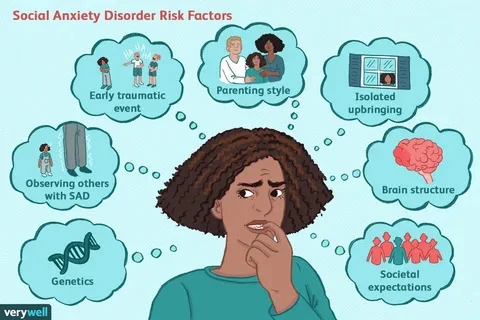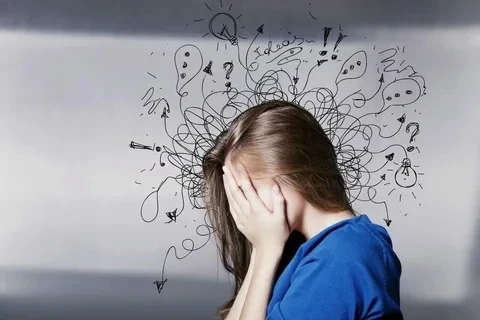Overview
Anxiety is a prevalent mental health issue that can impact people of all ages, including teenagers, adults, and the elderly. Tailored treatments that take into account the distinct demands, developmental stages, and obstacles encountered by every generation are necessary for the effective treatment of anxiety. This article will examine several techniques to treating anxiety in different age groups, emphasizing the need of individualized care in fostering mental health and reducing anxiety symptoms.
Children and Adolescents with Anxiety
Anxiety can affect kids and teens for a variety of reasons, including social pressures at school, family issues, developmental milestones, and school pressures. Specific treatment methods are needed for anxiety disorders in this age group, such as generalized anxiety disorder (GAD), phobias, separation anxiety, and social anxiety.
Psychoeducation
It is crucial to teach kids, teens, and their families about anxiety, its symptoms, and coping mechanisms. Psychoeducation lessens stigma, normalizes anxiety symptoms, and improves patient participation in treatment.
Cognitive-Behavioral Therapy (CBT):
CBT has been shown to be quite successful in treating anxiety in kids and teenagers. It emphasizes coping skill instruction, gradual exposure to anxiety-inducing circumstances, and the identification and challenge of negative thought patterns.
Play therapy offers a secure and creative way for younger kids to explore their emotions, develop their social skills, and pick up coping mechanisms through play-based activities.
Parental Involvement: Supporting children and adolescents with anxiety requires parents to participate in their treatment. Parent education programs teach parents how to support their child\'s anxiety treatment while also teaching them good parenting techniques and communication skills.
School-Based Interventions:
Students with anxiety disorders can benefit from working with schools to implement accommodations, support services, and methods that reduce anxiety.
Adult Anxiety
Anxiety disorders affect adults in many different ways. These include panic disorder, social anxiety disorder, generalized anxiety disorder (GAD), obsessive-compulsive disorder (OCD), and particular phobias. Adults who are suffering from anxiety may benefit from:
Cognitive-Behavioral Therapy (CBT):
For the treatment of anxiety in adults, CBT is still the gold standard. It assists in recognizing and combating dysfunctional beliefs and actions, cultivating coping mechanisms, and applying exposure tactics.
Techniques for Mindfulness and Relaxation:
Including progressive muscle relaxation, yoga, deep breathing, and mindfulness meditation can help with emotional control and stress reduction.
Medication Management:
To treat anxiety symptoms, doctors may give benzodiazepines, SSRIs, SNRIs, or other drugs based on the severity of the symptoms.
Lifestyle Adjustments: Promoting good lifestyle practices, such as consistent exercise, a well-balanced diet, enough sleep, and stress reduction methods, helps with anxiety management and general well-being.
Support Groups and Peer Support:
Participating in peer support networks or joining support groups offers emotional validation, motivation, and common coping mechanisms.
Seniors\' Anxiety
Anxiety in seniors can be brought on by changes in their lives, health issues, losing their independence, social isolation, and cognitive decline. Seniors with anxiety should have certain needs in mind when treating them:
Geriatric Counseling:
Seniors who require specialized counseling services to deal with age-related issues, life transitions, bereavement, and adjusting to medical problems or cognitive changes might receive it.
Cognitive-Behavioral Therapy (CBT) for Seniors:
Specialized CBT programs target cognitive distortions, encourage flexible coping mechanisms, and build resilience.
Exercise & Physical Activity:
Walking, tai chi, or mild yoga are examples of physical activities that seniors can do to enhance their mood, cognitive abilities, and general well-being.
Social Engagement and Support: Reducing social isolation and loneliness, which are risk factors for anxiety in seniors, is achieved through facilitating social contacts, group activities, and community involvement.
Medication Management:
Seniors need to have their prescriptions carefully managed, which includes monitoring and modifying any drugs that may interfere with one another or cause anxiety.
Teaching elders relaxation methods, mindfulness exercises, and stress-reduction tactics helps them better control their emotions and manage their anxieties.
In summary
 Treatment for anxiety across generations necessitates specialized methods that take into account each age group\'s particular problems, life experiences, and developmental phases. Personalized treatment plans that include psychoeducation, therapy (such as CBT), mindfulness exercises, medication management when necessary, lifestyle changes, and social support are essential for promoting mental health and successfully reducing anxiety symptoms, regardless of the age of the patient. Healthcare professionals may provide compassionate, all-encompassing care that enables people to enjoy happy, meaningful lives by having a thorough awareness of the various needs of various generations.
Treatment for anxiety across generations necessitates specialized methods that take into account each age group\'s particular problems, life experiences, and developmental phases. Personalized treatment plans that include psychoeducation, therapy (such as CBT), mindfulness exercises, medication management when necessary, lifestyle changes, and social support are essential for promoting mental health and successfully reducing anxiety symptoms, regardless of the age of the patient. Healthcare professionals may provide compassionate, all-encompassing care that enables people to enjoy happy, meaningful lives by having a thorough awareness of the various needs of various generations.



